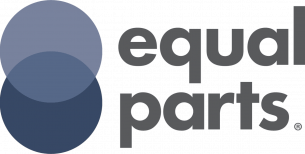Increasing employee productivity is a central goal in any successful organization. Professionals who are unhappy in the workplace are fundamentally unproductive. Still, a decrease in productivity doesn’t necessarily mean employees have fully lost interest in their jobs. Instead, these workers simply need a recharge.
Similar to a high school pep rally before a big sports game, employees need to be frequently “psyched up” to stay on track and reconnect with their professional passions.
Here’s how to boost employee productivity starting today:
Assign Tasks Based on Skills and Strengths
Employees perform best when assigned work aligns with their strong points. For example, a worker who thrives at giving presentations might struggle with tasks that are detailed-oriented and require adhering to strict rules.
Knowing an employee’s personality and work approach is an important first step to assigning duties. If you find yourself questioning a worker’s ability to effectively complete a task, consider re-assigning the work to someone whose skills, work style, and personality are a better fit.
Keep the Lines of Communication Open
Communication remains the key to a productive workplace. In this era of increased technology use, keeping in touch is easier than ever. Still, you shouldn’t rely solely on digital communication. Text and email often fail to convey tone or intent and may lead to misinterpretations.
It takes time to open an email or answer a text. In addition, the draw of social media is difficult for many workers to resist. As such, short in person conversations are a valuable time saver. These brief interactions can quickly relay information while minimizing distractions and temptations.
Provide Training and Development Opportunities
Some managers view professional development and continuing education as time that could be better spent completing projects. However, allowing workers to be exposed to timely and relevant information will only help the company’s bottom line.
When workers are confident in their abilities to effectively perform tasks, they work smarter and are more efficient. They won’t have as many questions, and the need to correct errors will significantly diminish
In addition, showing that you’re invested in the professional advancement of an employee builds trust and respect. Employees who feel appreciated are connected to the workplace and motivated to achieve professional excellence.
Offer Flexibility
While some managers are hesitant to allow employees to work from home part-time or full-time, research has shown that offering flexibility directly increases employee productivity.
Extending this trust not only promotes employee loyalty and respect but also benefits the company. For example, a worker who is unable to physically come to work due to illness or family emergency might be willing to put in a few hours from home to stay caught up. Even a half day of worker contribution is better than having to shoulder an entire day of missed productivity.
Make Productivity Fun
Most workers appreciate a good challenge. Incentives and rewards are a great way to achieve your goal of increased employee productivity. Some ways to make reaching work goals fun include:
-
Public recognition
-
Awards dinners/events
-
Cash incentives and paid time off
-
Contributions to employee causes
In the end, it’s important to remember that employees are people, too. They have outside-of-work challenges, including family commitments and personal struggles. These factors can negatively affect productivity. Building a positive workplace culture around mutual respect and open communication is essential. When people view their coworkers as friends and family, the quality of their work naturally increases.

